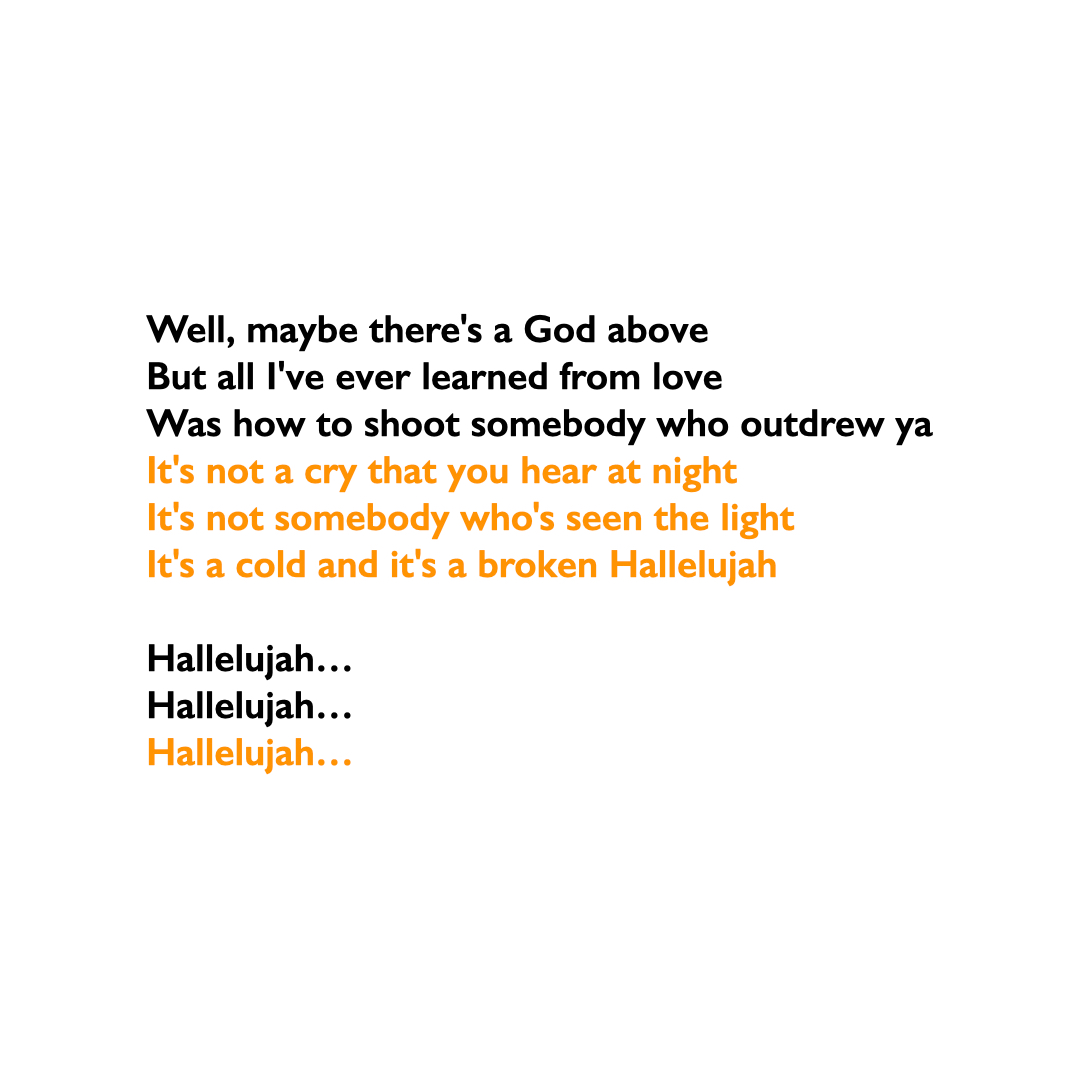Statutory warning: My apologies - this is a longer post than usual. But it’s Cohen, and it’s Hallelujah.
There are reportedly more than 300 different versions of the song, Hallelujah that Leonard Cohen first released in 1984. Its rise to popularity wasn’t instantaneous, it was slow, measured, and the song got its due after many embellishments by Cohen, but also by everybody who sang it. Hallelujah is a river whose water retains the flavour of all the colourful cities it passes by, and artists have drank from this eternal spring for decades, now. The story of the song’s journey is in itself a saga of creative fervour, love, faith, and immortality. In an answer to the question “What is the magic of Hallelujah?”, Cohen talks a bit about this journey:
“It took a long time… It came out in ‘83 or ‘84. The only person who seemed to recognise the song was Dylan. Nobody else recognised the song until quite a long time later… almost ten years later, Jeff Buckley’s version…I was in the room when K. D. Lang sang it... That really touched me….I had a very modest career for most of my life, and I was always happy when someone did one of my songs… In fact, my critical faculties almost went into suspended animation when someone would do one of my songs, and I generally was delighted.”
He goes on to talk about Alberta Hunter singing love songs, and he says, he’d love to hear an “old guy lay out” classic songs- “I’d love to hear myself at eighty two”. Cohen died soon after his last album You want it darker at the age of 82. At the end of that interview, Cohen asks the crew and the producer - “Did we get anything interesting?”. It is this humility, and this fragile, tentative approach to the world, filled with conscientous questioning, that has always fascinated me. This questioning is what endears me to Van Gogh and Sylvia Plath too.
In his episode on Hallelujah, Malcolm Gladwell interviews Alan Light, the author of The Holy or the Broken: Leonard Cohen, Jeff Buckley, and the Unlikely Ascent of "Hallelujah", who recounts the story of Cohen and Dylan’s mutual admiration, and their different styles of creation. Cohen famously wrote 80 different verses (there’s the story of him sitting on the floor of his hotel room banging his head, with sheafs of Hallelujah text spread around him). Dylan asks him how long it took him to write Hallelujah. Cohen says 2 years, which is a lie - it took him much longer. Cohen asks Dylan how long it took him to write “I and I” and he says fifteen minutes!
Gladwell uses David Galenson’s theory of creativity that talks of the different trajectories of the “conceptual innovator” and the “experimental genius”. The Dylans and Picassos of the world erupted onto the scene with their early work where the creative act was one distinctive, feverish, precise burst of energy, but the Cohens and Cézannes of the world would tinker away, hacking obsessively, creating a hundred different versions, unsure where they’re headed at the beginning, but slowly, and surely, finding the light. Galenson calls artists like Dylan conceptual innovators, and the other kind, like Cohen, experimental geniuses.
“It might take them a lifetime to figure out what they want to say” says Gladwell. But oh lord, what a moment it is when they say it! With Cohen’s hallelujah, every version is intense and kaleidescopic, and every musician who has done their own version has given to the song as much as they have taken.
The text I’m sharing is Buckley’s version which takes verses from two of Cohen’s versions. Some biblical references remain, but Buckley crafts something beautiful out of Cohen’s genius, and catapults the song into fame more than eight years after it was first sung. Buckley’s version is melancholic but intoxicating - he describes it as a “hallelujah to the orgasm”. His mesmerising, young voice turns Cohen’s initial divine anthem with Gospel undertones into a tender, acoustic musing on the nature of love and relationships.
The “brokenness” of Cohen’s Hallelujah is what is endearing. It is beautiful because it is imperfect. As he says elsewhere - “There’s a crack in everything, that’s how the light gets in”.
Share Hallelujah with a loved one.
Share Poetly with a friend who’d like to see poetry and commentary in their inbox.





